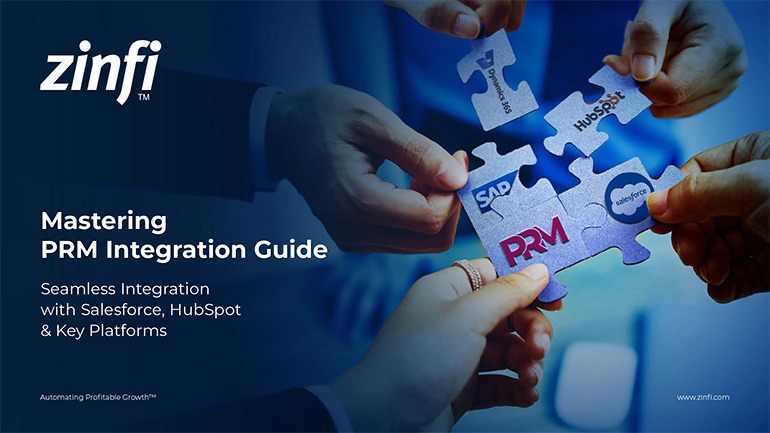Glossary - How to - Channel Partner Marketing
How to Implement Channel Partner Marketing?
Introduction
Channel partner marketing is a strategic approach where businesses collaborate with external partners, such as resellers, distributors, or affiliates, to expand their market reach and drive sales. By leveraging established partner networks and customer bases, companies can significantly enhance their brand visibility and revenue streams.
In Partner Relationship Management (PRM), channel partner marketing is crucial in streamlining partner onboarding, engagement, and performance tracking. PRM solutions provide automated tools to manage marketing campaigns, measure partner contributions, and ensure seamless communication between businesses and their partners. Implementing a well-structured channel partner marketing strategy leads to improved collaboration, optimized sales performance, and brand presence.
Key Takeaways:
Develop a Comprehensive Channel Partner Marketing Strategy:
A well-defined strategy is essential to align business goals with partner capabilities. Companies should:
- Identify the right partners based on market alignment and expertise.
- Define clear expectations, incentives, and objectives.
- Create structured partner programs with tiered benefits and support.
Leverage PRM Tools for Seamless Partner Engagement:
PRM solutions help automate and streamline partner interactions. Key benefits include:
- Centralized partner portals for access to marketing resources.
- Automated lead distribution and tracking.
- Real-time performance analytics and reporting.
Provide Co-Branded Marketing Materials:
Supporting partners with high-quality marketing assets ensures brand consistency and effectiveness. Companies should:
- Develop customizable templates for partners.
- Provide social media kits and email marketing resources.
- Offer training sessions on product positioning and messaging.
Implement Data-Driven Performance Metrics:
Measuring the success of channel partner marketing requires tracking key performance indicators (KPIs), such as:
- Partner-driven revenue contributions.
- Lead conversion rates from partner campaigns.
- Customer retention and satisfaction scores.
Foster Strong Relationships through Incentive Programs:
To keep partners engaged and motivated, businesses should:
- Offer performance-based incentives and rebates.
- Organize partner training and certification programs.
- Recognize and reward top-performing partners.
Summary of Key Takeaways:
Channel partner marketing is essential for businesses looking to scale efficiently. Implementing a structured strategy, utilizing PRM tools, supporting partners with co-branded materials, tracking performance, and fostering strong relationships contribute to a successful partnership model.
Key Examples:
- Automotive Manufacturing: Car manufacturers collaborate with dealership networks to market and sell vehicles. Providing dealerships with branded marketing materials, sales incentives, and digital advertising support enhances their ability to attract buyers.
- Consumer Electronics: Technology companies partner with retailers to promote new products. By leveraging PRM platforms, brands can ensure product knowledge training, co-branded campaigns, and sales promotions align with their marketing strategies.
- Energy Production: Renewable energy companies work with resellers to distribute solar panels and energy solutions. Channel marketing strategies help partners understand regulatory requirements and optimize outreach efforts.
- Financial Services: Banks and insurance providers engage brokers and financial advisors as channel partners. Providing them with market insights, promotional materials, and training increases their effectiveness in client acquisition.
- Food and Beverage: Manufacturers collaborate with distributors and restaurant chains to introduce new products. A structured partner marketing plan ensures visibility in retail stores and maximizes sales opportunities.
- Healthcare Services: Medical device companies partner with hospitals and clinics. Co-branded educational content and incentive programs help drive the adoption of new medical technologies.
- Information Technology: IT vendors rely on managed service providers (MSPs) and value-added resellers (VARs) for software and hardware sales. PRM solutions facilitate seamless collaboration, lead management, and campaign execution.
- Pharmaceutical Development: Drug manufacturers work with pharmacies and healthcare providers to market prescription medications. Partner training and compliance-based marketing programs ensure adherence to regulatory guidelines.
- Retail Industry: Retail brands leverage affiliate marketers and franchise owners to expand their presence. PRM tools assist in managing marketing campaigns, promotions, and loyalty programs.
- Telecommunications: Telecom providers collaborate with independent agents and resellers for broadband and mobile services. Offering sales training, marketing support, and partner incentives enhances customer acquisition.
Conclusion:
Channel partner marketing is a powerful strategy that enables businesses to scale by leveraging external partnerships. Implementing a well-structured marketing approach with the right tools, resources, and performance tracking ensures long-term success. Companies that invest in PRM solutions can streamline partner interactions, enhance collaboration, and optimize marketing efforts for maximum impact.
Associated Keywords:
- Channel Partner Marketing Strategy
- PRM Solutions for Channel Partners
- Best Practices in Channel Partner Marketing















